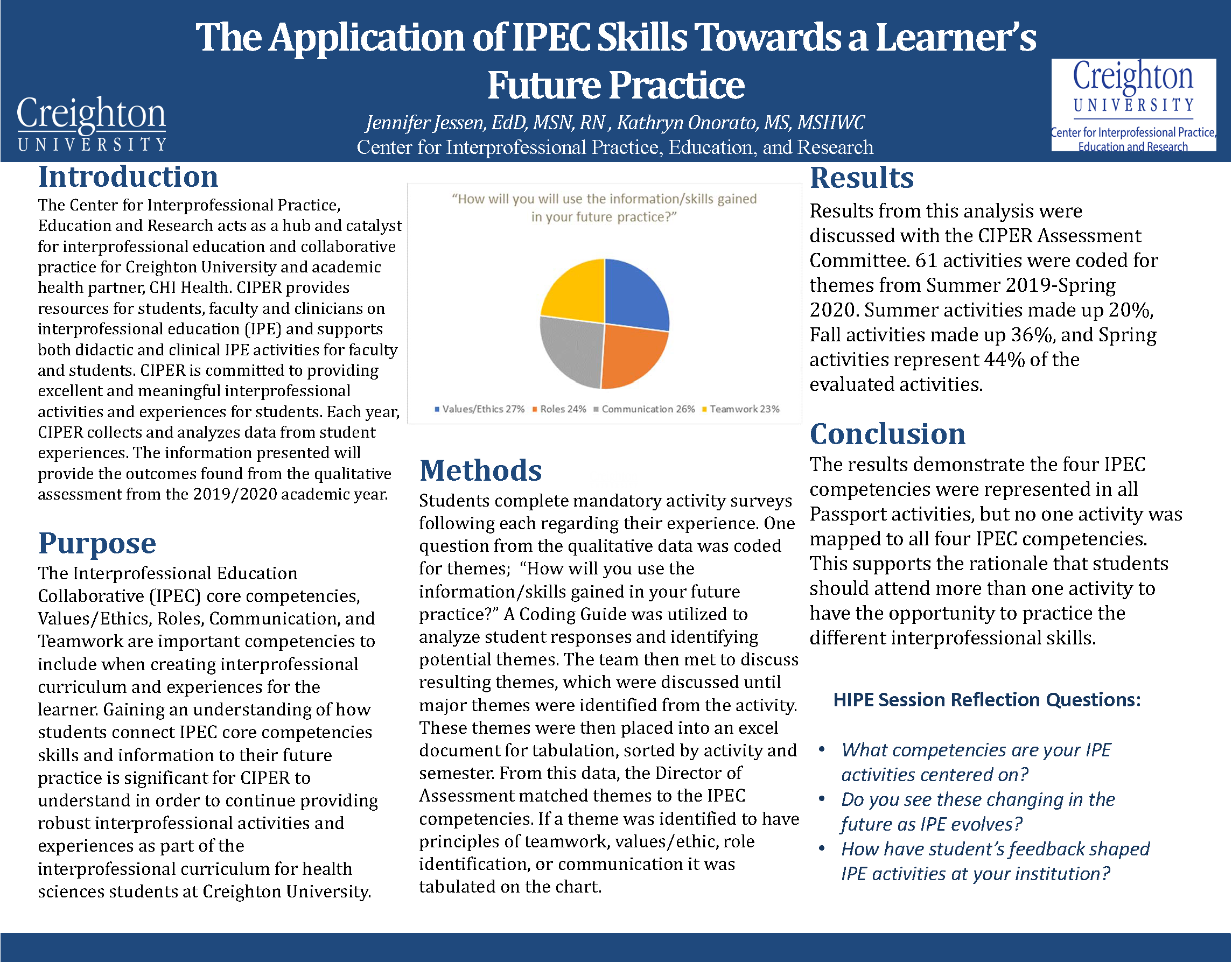
POSTER PRESENTATIONS
Materials should NOT be shared with those that are not registered for the conference. Poster abstracts are not proofed for spelling and/or grammar errors.
The Application of IPEC Skills Towards a Learner’s Future Practice
Jennifer Jessen, EdD, MSN, RN and Kathryn Onorato, MS, MS-HWC
Creighton University Center for Interprofessional Practice, Education and Research
Objectives
- Discuss student perceptions of interprofessional skills gained in Passport activities.
- Discuss how IPEC competencies are developed through Passport activities.
Abstract
The Center for Interprofessional Practice, Education and Research (CIPER) acts as a hub and catalyst for interprofessional education and collaborative practice for Creighton University and its academic health partner, CHI Health. CIPER provides resources for students, faculty and clinicians on interprofessional education (IPE) and supports both didactic and clinical IPE activities for faculty and students. CIPER is committed to providing excellent and meaningful interprofessional activities and experiences for students. Each year, CIPER collects and analyzes data from student experiences. The objective of this poster presentation will provide the outcomes found from the qualitative assessment from the 2019/202 academic year.
Students complete mandatory activity surveys following each activity which allows the CIPER team to collect quantitative and qualitative data regarding their experience. Qualitative data was downloaded from the surveys and de identified. The question from the qualitative data which was coded for themes is: How will you use the information/skills gained in your future practice? A Coding Guide was utilized for each of the student responses, by individual reviewers, taking notes on the responses, identifying potential themes, and selecting data points from the student responses. The team then met to discuss their individual results and themes, which were discussed until major themes were identified from the activity. These themes were then placed into an excel document for tabulation, sorted by activity and semester. From this data, the director of assessment matched the themes to the IPEC competencies. If a theme was identified to have principles of teamwork, values/ethic, role identification, or communication, it was tabulated on the chart. Results from this analysis were discussed with the CIPER Assessment Committee. 61 activities were coded for themes from Summer 2019-Spring 2020. Summer activities made up 20%, Fall activities made up 36%, and Spring activities represent 44% of the evaluated activities.
The results demonstrate the four IPEC competencies were represented in all Passport activities, but no one activity was mapped to all four IPEC competencies. This supports the rationale that students should attend more than one activity to have the opportunity to practice different interprofessional skills.

View PDF version to zoom or download.
